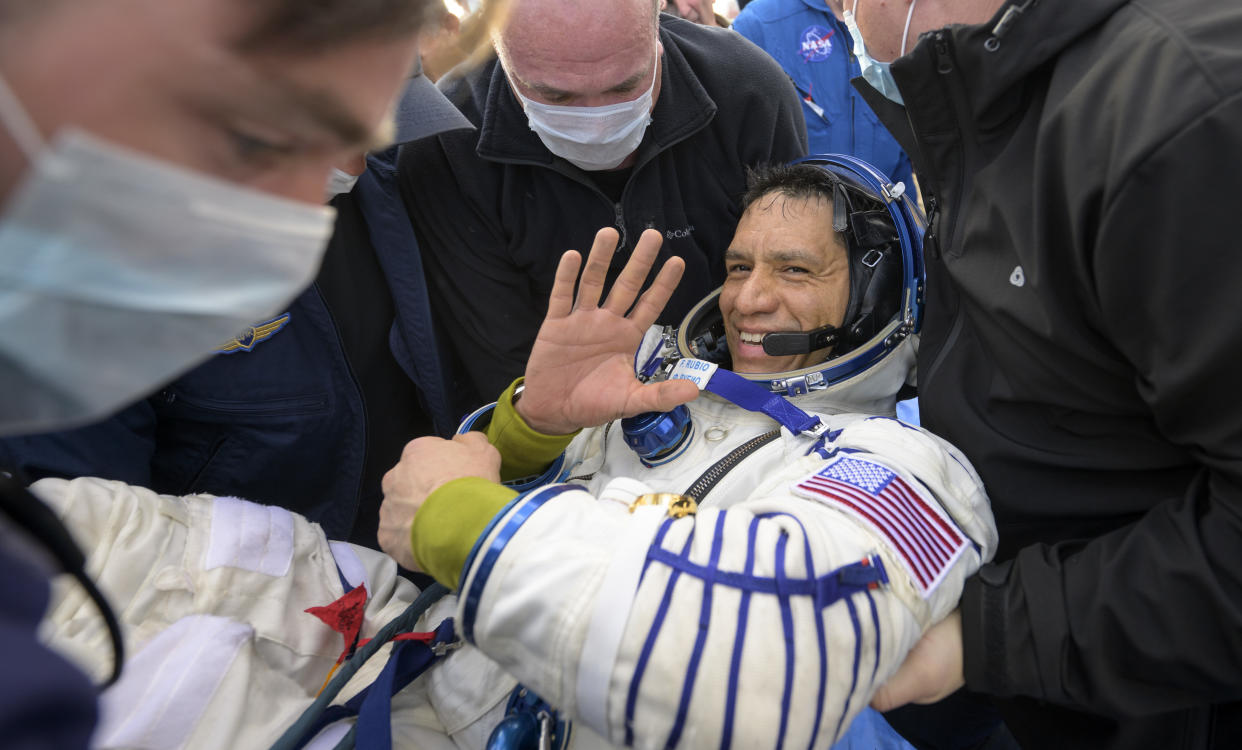Astronauts return after circling Earth thousands of times while stuck in space

- Oops!Something went wrong.Please try again later.
- Oops!Something went wrong.Please try again later.
- Oops!Something went wrong.Please try again later.
- Oops!Something went wrong.Please try again later.
One American and two Russian astronauts have finally returned to Earth after being stuck in space for over a year.
Nasa's Frank Rubio and the Roscosmos cosmonauts Sergey Prokopyev and Dmitri Petelin landed in a remote area of Kazakhstan yesterday. They returned in a Soyuz capsule that was "rushed up as a replacement" after their original was hit by space junk and lost all its coolant while docked to the International Space Station, reported The Associated Press.
The coolant leak was discovered in December 2022, some three months after the crew had left Earth from the Baikonur Cosmodrome in Kazakhstan.
Engineers feared that without the coolant, the capsule's electronics and any occupants could overheat to "dangerous levels", leaving the men without a safe way to return to Earth. A replacement Soyuz spacecraft had to be sent to the ISS, which finally arrived in February.
Rubio, Prokopyev and Petelin still had to wait for their relief crew who would take over their duties on the ISS, explained Space.com – "and that new trio couldn't lift off until yet another Soyuz was ready". Their replacements, Nasa's Loral O'Hara and Russia's Oleg Kononenko and Nikolai Chub, arrived at the ISS just over two weeks ago.
The trip, originally planned to be 180 days long, turned into a 371-day stay – an "unexpected adventure" that meant Rubio set the record for the longest US spaceflight, previously set by Mark Vande Hei in 2022, said The Telegraph. The longest-ever spaceflight by a human, however, was set in 1995 by Russian cosmonaut Valeri Polyakov, who spent 437 days aboard the Mir Space Station.
The men had spent so much time in a low gravity environment that they had to be "lifted out of the capsule by the recovery teams" on their arrival back on Earth, said the BBC.
But Rubio's "extended trip in space" will provide "valuable insights into how humans can cope with long-duration spaceflight" after he became the first astronaut to participate in a study examining how exercising with limited gym equipment can affect the human body. Such a study could provide "vital" information "as humans set their sights" on sending crews on missions to planets as far away as Mars – a journey that could take over three years.
During the mission, Rubio and his crewmates "completed about 5,936 orbits aboard the space station", said The New York Times, and travelled more than "157 million miles, roughly the equivalent of 328 trips to the Moon and back".

